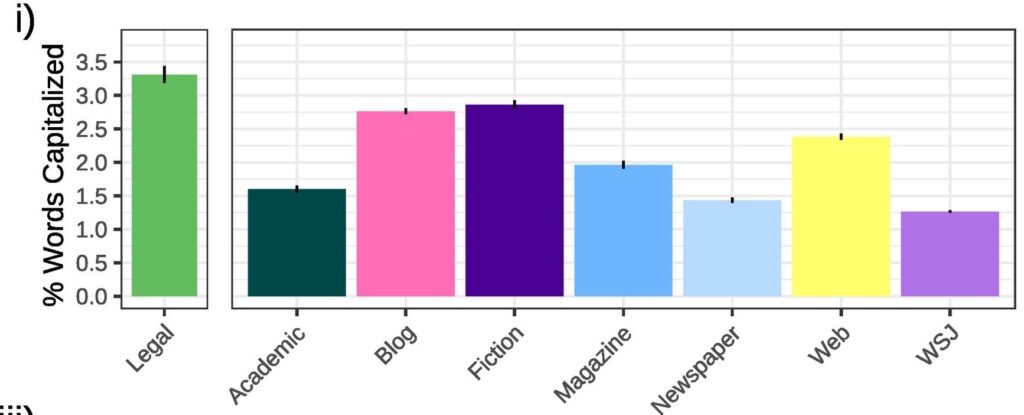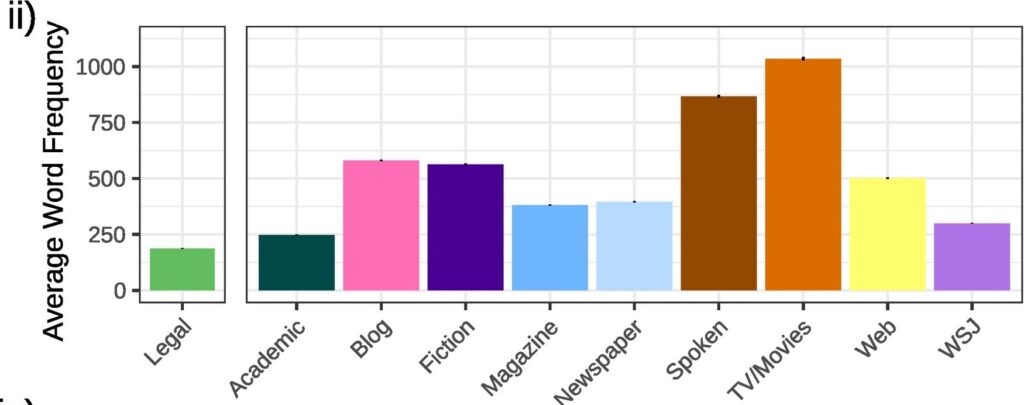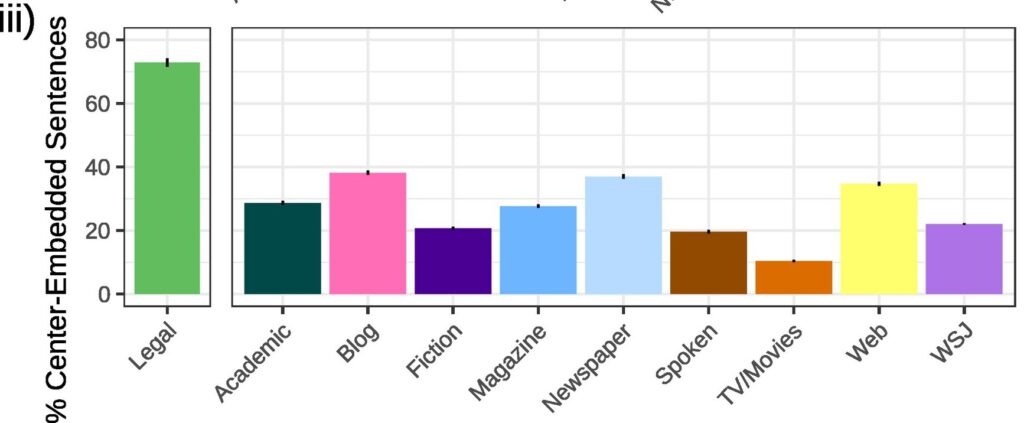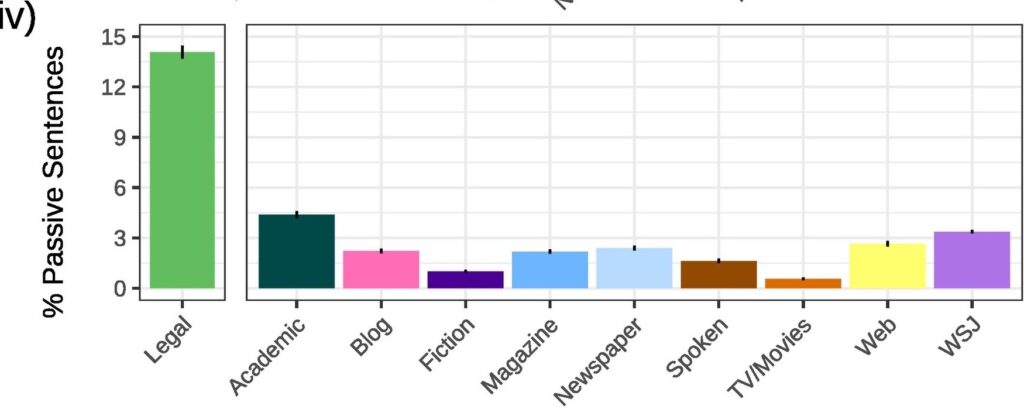As you know or should know, the Annals of Improbable Research awards the Ig Nobel Prizes every year to celebrate scientific “achievements that make people laugh, then think.” I’m a big fan of these and mention them whenever they honor research even remotely related to law, such as the prize awarded to those responsible for the important study, “On the Reception and Detection of Pseudo-Profound Bullshit.” See “2016 Ig Nobel Prizes Awarded” (Sept. 23, 2016). The 2022 Ig Nobel Prize Winners have just been announced, and one of them could not be more relevant.
The 2022 Ig Nobel Prize for Literature has been awarded to Eric Martinez, Francis Mollica, and Edward Gibson, for their study of the reasons that legal documents are often so hard to read. See “Poor writing, not specialized concepts, drive processing difficulty in legal language,” Cognition (July 2022). They first used software to analyze about 10 million words’ worth of contract language and compare that to other genres of written English. Then they tried to measure how well readers recalled and understood excerpts with and without certain features. From the abstract:
[C]ontracts contain startlingly high proportions of certain difficult-to-process features—including low-frequency jargon, center-embedded clauses (leading to long-distance syntactic dependencies), passive voice structures, and non-standard capitalization—relative to nine other baseline genres of written and spoken English. Two experiments further revealed that excerpts containing these features were recalled and comprehended at lower rates than excerpts without these features, even for experienced readers, and that center-embedded clauses inhibited recall more—so than other features.
These findings (a) undermine the specialized concepts account of legal theory, according to which law is a system built upon expert knowledge of technical concepts; (b) suggest such processing difficulties result largely from working-memory limitations imposed by long-distance syntactic dependencies (i.e., poor writing) as opposed to a mere lack of specialized legal knowledge; and (c) suggest editing out problematic features of legal texts would be tractable and beneficial for society at-large.
Scientists don’t always write so well, either, or at least they are just as prone as lawyers to use “low-frequency jargon.” For example, I couldn’t agree more with the authors’ conclusion that “processing difficulties with regard to legal texts result from working-memory limitations imposed by long-distance syntactic dependencies, and that it would be beneficial to make this tractable by editing out the texts’ most problematic features,” but they could have said “bad writing makes legal documents hard to read and lawyers should stop doing it.”
Still, there is lots of great info in the study and it is worth reading. The authors focused on five “indices of processing difficulty,” namely (1) “non-standard capitalization,” (2) infrequently used words, (3) word choice (jargon), (4) “center-embedding” (complex syntax) and (5) use of passive voice. I’m not clear on the difference between a word that is “infrequently used” and one that is “jargon”—isn’t all jargon infrequently used?—and this might be why their graph of the results only has four boxes.
This first one shows that lawyers capitalize words non-standardly, at about twice the rate normal human beings do:

I suspect the high rate in the “fiction” category is because it includes more proper names, and the high rate in the “blog” and “web” categories is because those include more non-professional writers. Regardless, over-capitalizing is a disease in the legal profession, according to me, and I’m amazed the percentage was only 3.3% here.
Second, the legal writing included a higher percentage of rare words (jargon):

Same for academics, unsurprisingly.
Third, lawyers appear to be very fond of “center-embedded structures,” which have “long been observed to pose processing difficulties [for] a reader” (they’re hard to read):

Why do lawyers do this? “The tendency for lawyers to ’embed’ legal jargon ‘in convoluted syntax’ has been speculated [to be] a potential badge of honor for those who wish to ‘talk like a lawyer’ and be accepted by their profession.” Probably true, but I wouldn’t describe the results they get as “honor” or “acceptance.”
Finally, lawyers’ use of the passive voice is off the charts:

Well, not literally “off the charts,” because there it is on the chart. It’s a figure of speech, okay? But it is almost off this chart, which shows that lawyers use passive voice about three times as often as academics do, and five or six times as often as magazine or newspaper writers.
Then the study’s authors tried to measure the effect of these differences by coming up with 12 pairs of excerpts, which were first “constructed in a standard legalese register” by a lawyer and then re-constructed in a normal human register. They de-capitalized, replaced jargon with not-jargon, unembedded the center-embedded clauses, and actified the passive constructions. Then they asked humans to read the various excerpts and answer questions that measured recall and comprehension. The results?
[C]ontracts drafted with all of these [crappy] features were more difficult to both comprehend and recall than contracts drafted without all of these [crappy] features[.]
(Bracketed material added.) As for particular features, jargon and complicated syntax were a bigger problem than passive voice and over-capitalization, but they’re all problems.
Finally, the authors speculate as to why lawyers tend to write in this crappy way. They mention hypotheses that lawyers may choose to do so for certain reasons, but think it’s more likely that they don’t choose to do so at all; “they may not realize that their language is too complicated for the average reader to understand.” I think that’s almost always the explanation. I think people typically spend a couple of years learning to “write like a lawyer,” and then even more time learning how not to write like a lawyer. But that effort is worth making.
At a minimum, could lawyers please, for the love of God, stop obsessively capitalizing everything in the first paragraph of a document? See “THIS AGAIN (Hereinafter, ‘This’)” (Mar. 23, 2022). It would be beneficial to make this tractable by editing out the texts’ most problematic features, and it might also keep my head from exploding.
Thank you for your attention to this matter.
